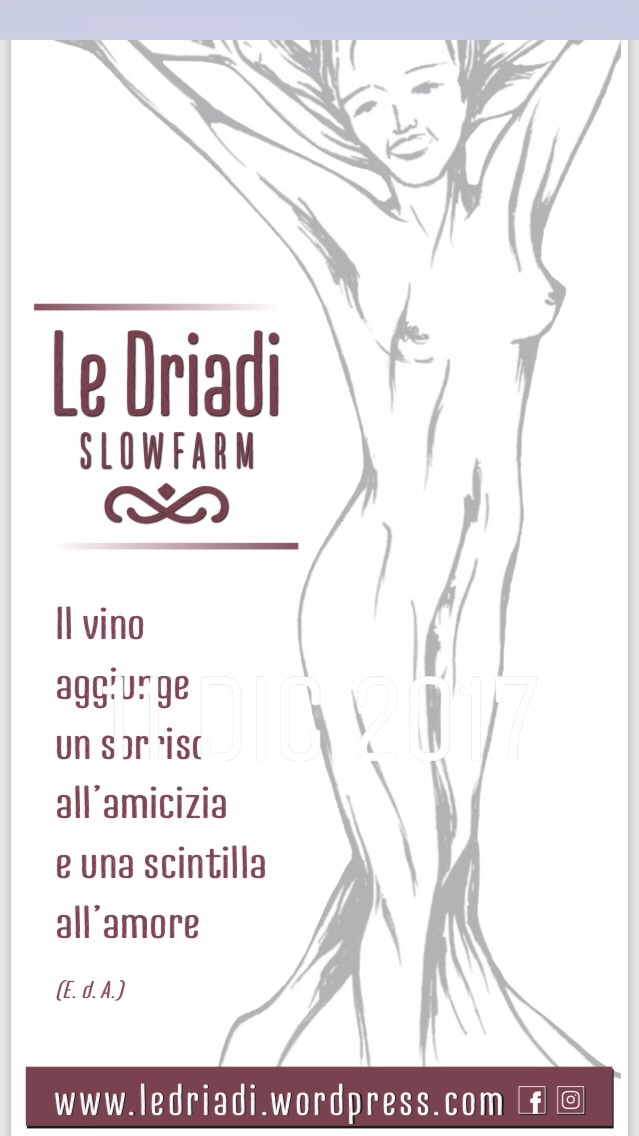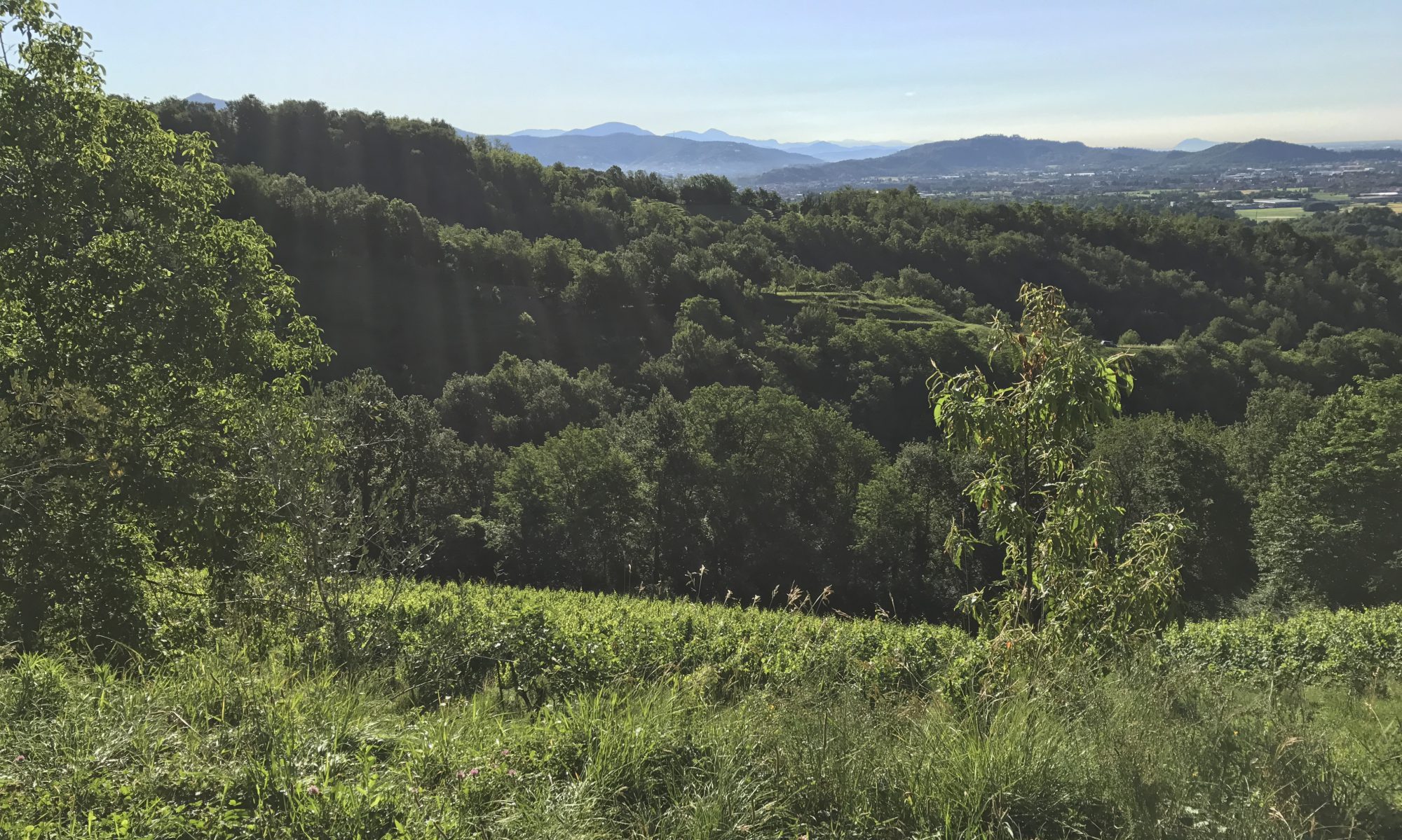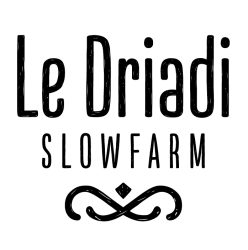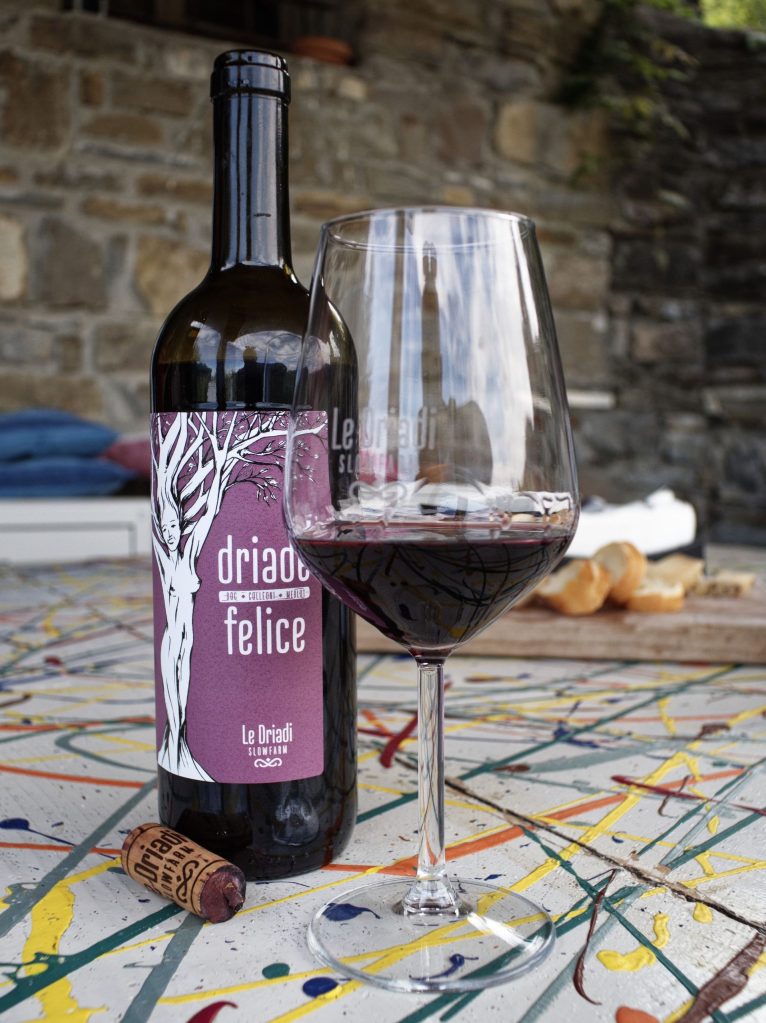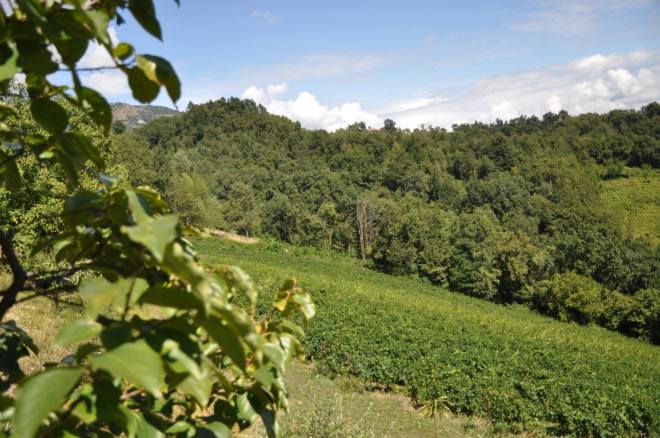Siamo una azienda agricola famigliare biologica e biodinamica nella zona di Palazzago/Pontida in provincia di Bergamo; coltiviamo e vinifichiamo il nostro Merlot, in vigneti recuperati dall’abbandono, riportati alla vita con passione e lavoro.
We are an organic and biodynamic family farm in the area of Palazzago/Pontida in the province of Bergamo (Lumbardy); we grow and produce our grapes, in a vineyard recovered from abandonment, brought back to life with passion and work.
L’azienda prende il nome dalle Driadi, le ninfe delle querce (dal greco dryas=quercia) che vivono nei boschi e incarnano la forza e il vigore vegetativo della quercia; non fanno corpo con gli alberi e non muoiono con essi, possono danzare e possono unirsi anche con noi mortali. Sono belle e giovani donne, con la parte inferiore della persona terminante con un tronco d’albero.
The company takes its name from the Dryads, the nymphs of the oaks (from the Greek dryas = oak) that live in the woods and embody the strength and the vegetative vigor of the oak; they are not part of the trees and they do not die with them, they can dance and can also unite with us mortals. They are beautiful and young women, with the lower part of the person ending with a tree trunk.
La Grande Quercia che domina il vigneto delle Driadi è il simbolo di questa azienda agricola, la stessa quercia che lascia libere, nelle notti nelle menti serene Le Driadi dei boschi, che insieme alla poiana, sorvegliano il vigneto che un giorno ci regalerà il suo meraviglioso vino.
The Big Oak that dominates the Driadi vineyard is the symbol of this farm, the same oak that leaves free, in the nights of the serene minds the Dryads, which together with the buzzard, guard the vineyard that give us its wonderful wine.
Our Timeline
2014: purchase of the Capietaglio vineyard and start of restoration
2015: first “micro” harvest
2016: harvest of rebirth
2017: first wines on the market (Driade Felice 2016 and Primabotte 2015)
2017: purchase of vineyard Rienza
2017-2018: new cellar construction
2018: First harvest in new cellar
2018: First Merlot Grappa production
2019: sowing of Rienza vineyard (Marzemino grapes) and increase of Driadi wineyard (Bronner grapes)
2020: Valgrande vineyard get managed by Driadi (Cabernet Franc grapes)
2021: Cascina dei Ronchi vineyard get managed by Driadi (Cabernet Sauvignon, Moscato Giallo, Barbera, Merlot, Red Moscato)
Come siamo arrivati qui.
How we got here
Era il marzo del 2014. La primavera era appena arrivata quando ci inerpicammo per una ripida strada sterrata che portava ad un piccolo rifugio in pietra, sotto una grande quercia; la strada procedeva tra le primule. Il terreno che trovammo era una selva di rovi, cespugli, alberi; era un terreno abbandonato da anni, abitato da tassi, poiane, volpi, fagiani, scoiattoli, caprioli, lucertole, biacchi, vipere e orbettini. Davanti alla casa resisteva un piccolo prato incolto aggredito ai lati da rovi, sotto i quali si intravedevano dei vecchi terrazzamenti.
Intorno alla casa un vigneto si stendeva geometricamente allineato lungo la collina; anche il vigneto ormai preda del bosco che si era infilato prepotentemente nei filari laterali con rovi e alberi. Dal terreno si godeva di una magnifica vista: la natura, selvaggia e incontaminata nell’intorno e più distante, verso l’orizzonte, la pianura, con i rumori e il paesaggio contaminato dall’uomo con in un angolo pendici dei colli di Bergamo.
Quel giorno nacque la decisione di riportare questo angolo a nuova vita e il sogno si concretizzò in giugno con la costituzione della Società Agricola Le Driadi che ad ottobre del 2014 ha acquistato il terreno.
La quotidianità si rigenerò con una nuova esperienza: l’attività nell’ingegneria e nella farmaceutica si è completata con nozioni di agraria, di antroposofia, applicate alla coltivazione del vigneto e dei terreni attorno: il recupero del contatto con la terra e con la natura, rappresentò un ritorno alle origini rigenerante e benefico.
Nel Marzo del 2018 un altro vigneto è entrato a fare parte dell’azienda. Il vigneto sprannominato Rienza dalla gente che vive qui, nella stessa valletta del vigneto delle Driadi, poco lontano, nel giugno 2018 abbiamo completato la nuova cantina, mentre nel 2019 negli antichi terrazzamenti accanto al vigneto di Merlot abbiamo messo a dimora 500 piantine di Bronner, un bianco che completerà la gamma dei nostri vini. Nel 2020 un nuovo vigneto, 5 colli ad est del vigneto Driadi. Un nuovo Cabernet che completerà la nostra offerta.
Questa è la storia di chi lavora ne “Le Driadi Slow Farm”. Quattro ettari di terreno divisi tra vigneto esistente (un ettaro), un vigneto futuro (mezzo ettaro), frutteto e bosco, salvati dai rovi e dall’abbandono; una terra ripida e impervia, dove solo il cuore e la passione possono portare dei frutti.
It was March 2014. Spring had just arrived when we climbed a steep dirt road that led to a small stone house under a large oak tree; the road proceeded among the primroses. The land we found was a forest of brambles, bushes, trees; it was a land abandoned for years, inhabited by badgers, buzzards, foxes, pheasants, squirrels, roe deer, lizards, white snakes, vipers and orbettini. In front of the house resisted a small uncultivated meadow attacked on the sides by brambles, under which old terraces could be seen.
Around the house a vineyard stretched geometrically aligned along the hill; also the vineyard now prey of the wood that had tucked forcefully into the side rows with brambles and trees. From the ground it was possible to enjoy a magnificent view: nature, wild and uncontaminated in the surroundings and more distant, towards the horizon, the plain, with the noises and the landscape contaminated by man with in a corner the slopes of the hills of Bergamo.
That day the decision to bring this corner back to life was born and the dream came true in June with the establishment of the Agricultural Company Le Driadi which in October 2014 bought the land.
Everyday life regenerated with a new experience: the activity in engineering and pharmaceuticals was completed with notions of agriculture, of anthroposophy, applied to the cultivation of the vineyard and the surrounding lands: the recovery of contact with the earth and with nature , represented a return to the regenerating and beneficial origins.
In March 2018 another vineyard joined the company. The vineyard named Rienza by the people living here, in the same valley of the Driadi vineyard, not far away, in June 2018 we completed the new cellar, while in 2019 in the ancient terraces next to the Merlot vineyard we planted 500 Bronner seedlings, a white that will complete the range of our wines. In 2020, last growth a small vineyard 5 hills far from our Driadi vineyard. A Cabernet wine will be added to our portfolio.
This is the story of those who work in “Le Driadi Slow Farm”. Four hectares of land divided between the existing vineyard (one hectare), a future vineyard (half a hectare), orchard and wood, saved from brambles and abandonment; a steep and inaccessible land, where only the heart and passion can bear fruit.
